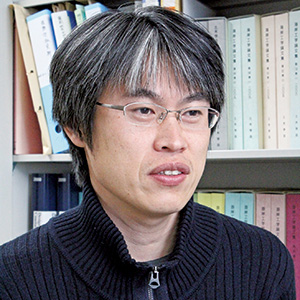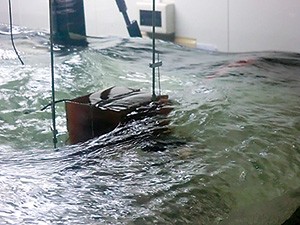
-

Construction
-

Disaster Prevention
OGASAWARA Toshinori Professor
Course
-
Faculty
Civil and Environmental Engineering
-
Master's Program
Regional and Community Design
-
Doctoral Program
Systems Innovation Engineering
Degrees Obtained
- Doctorate (Engineering) Field of Degree: Civil
Fields of Research
- Coastal engineering
- Hydro engineering
Profile
- March 1997: Graduate from Civil Engineering, Faculty of Engineering, Gifu University
- March 1999: Completed studies at Graduate School of Engineering, Gifu University
- April 1, 1999 - March 31, 2001: Employed by Toyama Prefectural Government
- March 2004: Completed studies at Graduate School of Engineering, Gifu University
- April 1, 2004 - March 31, 2007: Assistant, Construction and Environmental Engineering, Faculty of Engineering, Iwate University
- April 1, 2007 - March 31, 2009: Assistant Professor, Construction and Environmental Engineering, Faculty of Engineering, Iwate University
- April 1, 2009 - August 31, 2019: Associate Professor, Civil and Environmental Engineering, Faculty of Engineering, Iwate University
- April 1, 2012 - present: Concurrent post: Researcher, Natural Disaster Analysis Department, Research Center for Regional Disaster Management, Iwate University
- September 1, 2019 - Present: Professor, Civil and Environmental Engineering, Faculty of Science and Engineering, Iwate University
Research Themes
Developing a numerical wave tank to make it possible to check the safety of buildings that will remain steadfast under inundation by a tsunami
The Sanriku Coast of Iwate prefecture is prone to tsunamis, and over 23,000 buildings were damaged by the giant tsunami due to the Tohoku earthquake in 2011. Although such catastrophes occur infrequently, it is nevertheless essential to protect lives and property against tsunamis and there is a need to establish building safety evaluation criteria. In my research, I conduct experiments using an open channel surge wave generator and, based on the flow conditions of the inundation obtained, I am developing a numerical wave tank that can perform fluid-building coupled analysis using the MPS method. My goal is to make it possible to check the safety of buildings that will remain steadfast in a tsunami.

Teaching Philosophy
Along with establishing basic knowledge of hydraulics that is required for the civil and environmental engineering course, graduates are equipped with a specialized knowledge of water engineering and water and sediment disaster prevention engineering and the disaster-prevention skills to respond to disasters not only in Japan but around the world.


